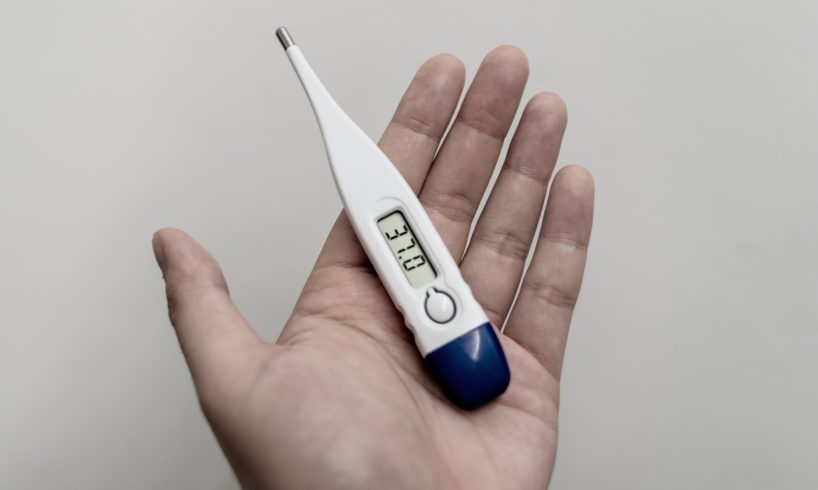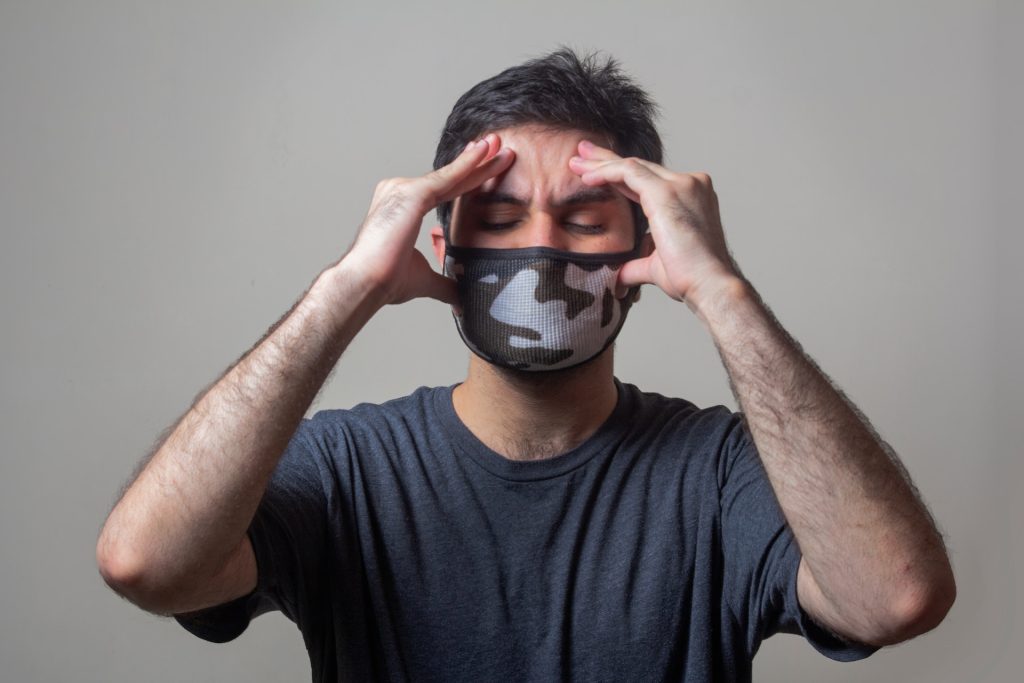
With COVID-19 continuing to spread, people with weak immune systems are at higher risk of getting sick. They are also more likely to have serious complications when they do get sick.
Skin infections and digestive issues like diarrhea or constipation are warning signs of a compromised immune system. Many medications, including those used for cancer treatment, organ transplantation and autoimmune diseases, are immunosuppressants.
Frequent Colds and Flu
Most people get two to three colds a year, which is normal and typically only lasts 7-10 days. However, if you catch the same cold over and over or are sick for months at a time, it may be a sign that your immune system is weakening.
The flu is a virus that infects the respiratory tract, causing symptoms like fever, headache, sore throat and a runny nose. It is a more serious disease than the common cold, and it can lead to complications such as pneumonia. Flu viruses are most prevalent in the winter, but can be present throughout the year. The risk of catching the flu is higher in children under 5, adults over 65 and those who suffer from chronic illnesses like cancer, HIV or AIDS and autoimmune diseases, reports MedlinePlus. Additionally, long-term stress is known to reduce your immunity and can contribute to getting frequent colds and the flu. Whenever you have colds and flu, it is best to have something that can track medical symptoms for your well-being.
Another warning sign of a weakened immune system is reactivation of herpes simplex virus infections. Herpes simplex virus is in the herpes virus family and remains dormant in your body until it is triggered by an emotional event or a weakened immune system. When this happens, your herpes simplex virus reactivates and causes an outbreak.
Preventing colds and the flu is easy, including washing your hands frequently, especially before eating or preparing food and after using the bathroom and wiping your nose. Avoiding contact with people who are sick, especially during peak cold and flu season, and cleaning commonly used surfaces (like doorknobs) can also help. In addition, a healthy diet and adequate exercise can also boost your immunity. If you do fall ill, a rapid test for the flu or the herpes virus and an antiviral medication will speed up recovery.
Boils
The boil is a painful, reddish-swollen bump on the skin caused by an infected hair follicle. It occurs when certain germs, usually Staphylococcus aureus (S. aureus), get deeper into the skin, often through a break caused by shaving or other scratching. The germs cause a build-up of pus and dead tissue. If a boil is left untreated, the infection may spread into the bloodstream and cause sepsis. Boils are more likely to occur in people with a suppressed immune system.
Most boils are solitary, but some can be part of a cluster called a carbuncle. A carbuncle is dome-shaped and usually grows over a period of days. They most commonly develop in the armpit, groin or genital area, but they can be found on the face, neck, back or buttocks. The pain from a boil increases over time as the pus inside the abscess fills up. If the boil doesn’t drain, a doctor can open it with a needle or lance it to allow the pus to escape. Afterward, the body breaks down the pus and heals the site of the boil.
Although rare, if the bacteria from a boil or carbuncle enters the bloodstream, it can cause infections in other parts of the body, including the heart (endocarditis) and bone (osteomyelitis). To prevent this, keep the wound covered with a clean dressing, change it frequently and wash your hands before and after touching the boil. Also, avoid sharing clothing, washcloths or towels and don’t touch contaminated objects.
Most boils go away on their own or are treated by a healthcare provider, such as a dermatologist. Antibiotics aren’t always used, but if the boil doesn’t respond to home treatment or causes fever or other serious symptoms, you should see a doctor immediately.
Skin Infections

When your immune system is functioning properly, it responds to any injuries or infections in a timely fashion. When it comes to skin problems, for example, if you get a cut or burn, it sends specialised immune cells called macrophages to the area to clear away any debris and protect the wound. It also encourages the growth of new skin tissue to help heal the wound.
However, if you’re constantly suffering from skin rashes, irritation or infection it could be a sign that your immune system is weakening. It is important to note that there are some medications that can weaken the immune system such as cancer chemotherapy drugs, corticosteroids and inflammatory bowel diseases like Crohn’s Disease.
Another red flag is if you’re taking antibiotics for the same health problem more than twice or four times in a year. This is because the repeated use of antibiotics will interfere with the natural bacteria in your gut and lead to a weakened immune system.
Finally, if you experience ongoing digestive issues such as bloating, constipation and gas then this can also be a sign of a weak immune system. We now know that 70 percent of the immune system is located in your gut and the microorganisms that live there play an important role in helping to maintain a strong immune system.
So, if you’re experiencing any of the above signs of a weak immune system then it’s important to address the issue immediately by implementing healthy lifestyle habits such as eating a balanced diet, getting enough sleep and using a clinically researched immunoprotective supplement daily. Taking these simple steps can help strengthen your immune system over time and protect you from common illnesses such as colds and flu.
Urinary Tract Infections
The immune system is designed to protect the body against viruses, bacteria and other microorganisms. But sometimes the immune system overreacts or doesn’t work as it should, leaving the body vulnerable to illness and infection. Many factors can weaken the immune system, from health conditions and medications to stress and even certain foods.
When your immune system is weakened, you’re more likely to get sick more often and have trouble recovering from illnesses. But there are certain warning signs that can help you tell if your immune system isn’t at its best.
Diarrhea and constipation that last for more than 2 to 4 weeks can signal that your immune system is attacking the lining of your gut. It’s also a sign that the healthy bacteria in your gut may have been damaged. Nearly 70 percent of your immune system is located in the gastrointestinal tract, and it’s full of good bacteria that help to keep the immune system strong.
Urinary tract infections, or UTIs, are one of the most common types of infection in adults. The urinary tract includes two kidneys, a bladder and a tube called the urethra that carries pee out of the body. UTIs affect 8 million to 10 million people a year and are more common in women than men.
The most common way to treat UTIs is antibiotics. Taking antibiotics too frequently, though, can weaken your immune system, making you more susceptible to future infections. You can reduce your risk of UTIs by drinking plenty of fluids and keeping up with regular urination. Urinating frequently helps flush the bladder of bacteria and prevents them from settling in the kidneys or urethra, which can lead to an infection.
Pneumonia
Pneumonia is a lung infection that happens when bacteria, viruses or even fungi inflame the air sacs of one or both lungs. The sacs fill up with fluid or pus, and symptoms include chest pain, fever, coughing (often with phlegm) and difficulty breathing. It can range from mild to life-threatening, especially for infants, the elderly and people with serious illnesses or weakened immune systems.
You might get pneumonia from breathing in droplets that contain the germs or by touching something that’s been contaminated with the germs. These include sneezes, coughs or even dirty hands. You can also get it from sharing drinking glasses or eating utensils with someone who has it, or from sharing your clothes or used handkerchiefs.
Because pneumonia has many of the same symptoms as a cold or the flu, it’s often hard to diagnose. Your doctor might check for it with a physical exam and listening to your lungs with a stethoscope. They may also take a sputum sample to see if there are signs of infection, and order a blood test to find out if there’s enough oxygen in your body. They may also do a pleural fluid culture, in which a long needle is inserted through the skin between your ribs and into the space around the lungs.
Treatment depends on what’s causing the infection, your age and overall health and can include antibiotics or medicines for cough, fever and pain. It’s important to follow your doctor’s orders, including getting plenty of rest and taking fluids. Try to avoid using cough suppressants, because it’s vital that you cough to clear the lungs of fluid and phlegm. You can also help prevent pneumonia by washing your hands frequently with soap and water or alcohol-based hand sanitizer, covering coughs and sneezes, and keeping common areas clean.







